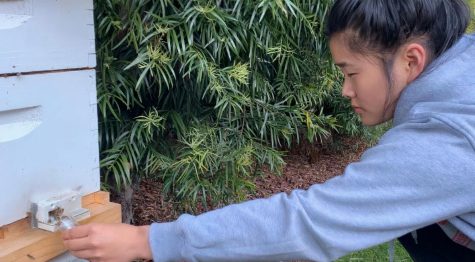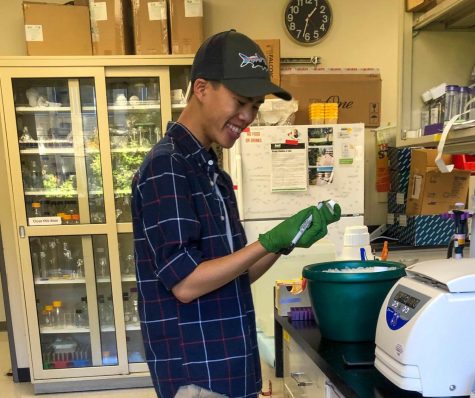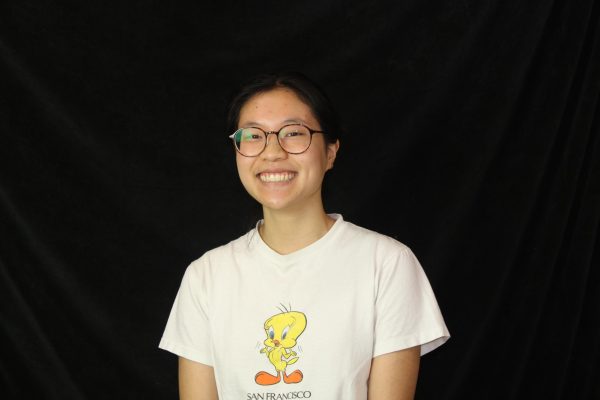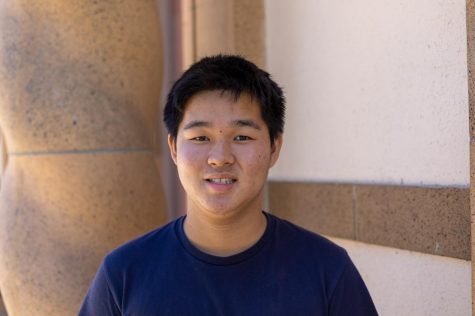Two students each win $25,000 in science competition
February 13, 2023
Two students from Palo Alto High School are hoping to place top 10 in the nation, after being selected as finalists for the Regeneron Science Talent Search last month.

According to the Society of Science, seniors Ryan Lee and Vivian Wu were both selected as finalists from a pool of over 1,900 students. The 82nd Regeneron Science Talent Search is the nation’s oldest and most prestigious science and math competition that recognizes students who have done exceptional science research.
Each of the 40 finalists is awarded at least $25,000, with the top 10 finalists winning awards ranging from $40,000 to $250,000, according to the competition’s press release.
Lee and Wu follow former student Neil Rathi, who placed 8th in last year’s competition.
“We are thrilled to welcome this inspiring and highly talented class of Regeneron Science Talent Search finalists,” said Maya Ajmera, president and CEO of the Society for Science, in a press release on Jan. 24. “I am certain these extraordinary students will be following in the footsteps of our many accomplished alumni who are the forefront of breakthrough discoveries.”
Wu investigated the impacts of formic acid, a chemical often used by beekeepers to treat varroa mite infestations, on the foraging performance of honeybees.
“I started my project when one day I observed that after treating my hives with formic acid, there was less pollen on the bottom board of my hives,” Wu said. “I thought that the reduction in pollen drop may have been due to formic acid negatively affecting the foraging performance of the bees and decided to investigate.”
Wu, who worked on this project for over a year, became curious about beekeeping through her Scouts BSA troop. Wu said the troop’s focus on participation in a variety of outdoor activities fostered her interest in honeybees.
“I was interested in beekeeping and got my first hive from one of the adult leaders in my Scout troop,” Wu said. “I enjoyed it and was really fascinated by the bees and eventually got more hives.”

Lee focused his project on identifying how a lack of energy may be a potential underlying cause of neurodegenerative diseases like Alzheimer’s and Parkinson’s.
“When mitochondria don’t work properly, you have this energy crisis and you lose structural plasticity,” Lee said. “In other words, you lose the ability to do a lot of things like learning and memory and that kind of stuff.”
Lee said that structural plasticity, the idea that brains change shape and size over time, fascinated him as it is largely unexplored.
“I was interested in structural plasticity already because that to me is a really interesting phenomenon,” Lee said. “I learned that there’s a lot that is really important, especially during sleeping and for memory, consolidation, learning and all of these things. There’s just so much to understand and so much to know and we don’t even know most of it. There’s a lot of unknown to explore.”
According to Lee, this relatively new field of brain science has many consequential implications in understanding cognitive processes that govern our lives, which will allow for many different future explorations.
“Research is definitely really interesting to me and neuroscience too,” Lee said. “There’s a lot of unknown to explore, and there’s a lot of implications especially as the world population gets older.”
Similar to Lee, while winning this award is a large accomplishment for Wu, she said she is still looking forward and hopes to pursue similar research beyond high school.
“I feel really grateful and honored to be selected as a finalist and definitely was not expecting for this to happen,” Wu said. “All the award money will go towards my college education. I plan to continue conducting STEM research at the undergraduate and then graduate level in the future.”
The top 10 winners of the Regeneron Science Competition will be announced on March 14.



